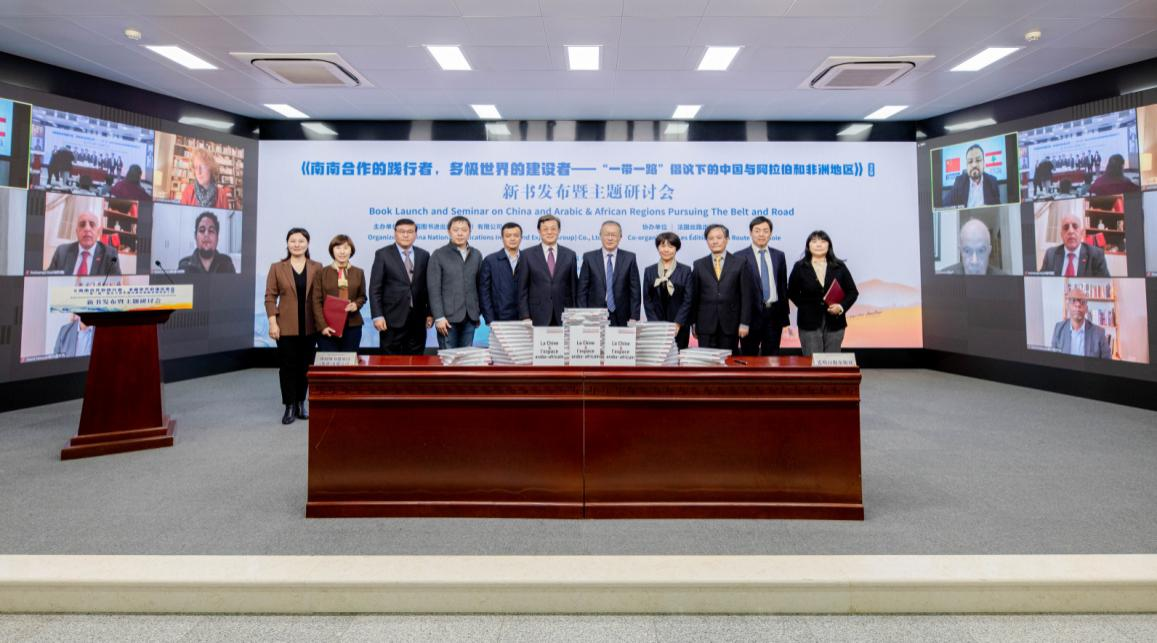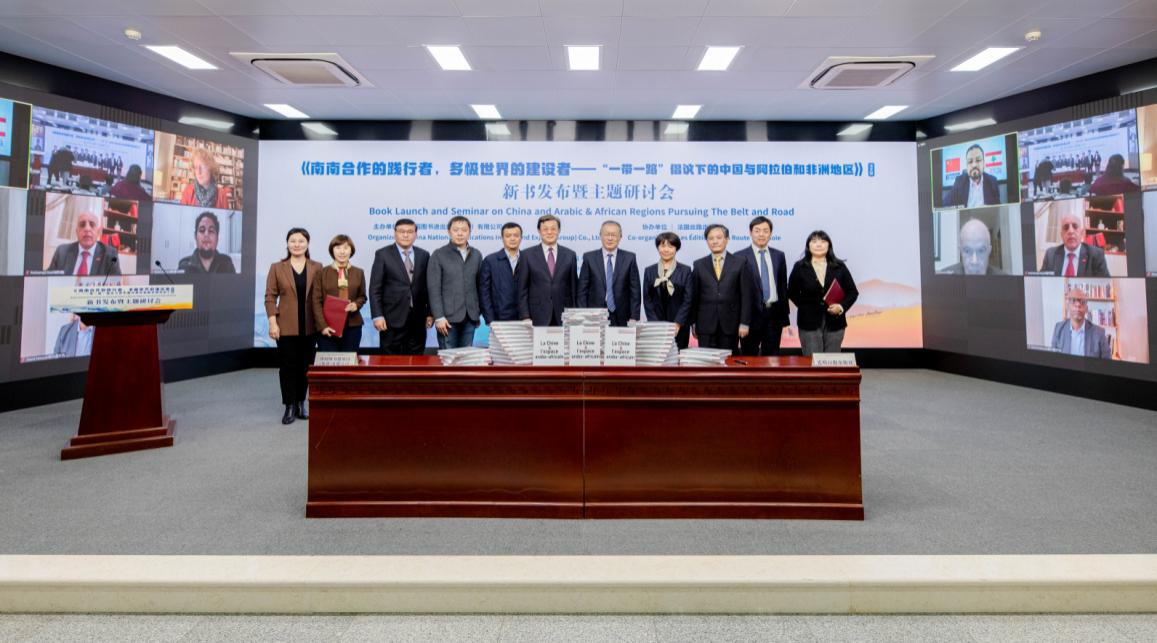BEIJING, Dec. 18 (Xinhua) -- A seminar on China and Arabic and African regions pursuing the Belt and Road was held here and online on Thursday, with participants calling for strengthened China-Arab and China-Africa cooperation under the Belt and Road Initiative (BRI), the Belt and Road Portal reported on Saturday.
Themed “Opportunities and Challenges for China-Arab and China-Africa Cooperation Under the BRI”, the seminar gathered experts from China, Morocco, Lebanon, Tunisia and South Africa who exchanged views on the theme.

Photo taken on Dec. 16, 2021 shows all participants of the seminar on on China and Arabic and African regions pursuing the Belt and Road. [Photo provided by the organizer]
Fathallah Oualalou, former Minister of Economy and Finance of Morocco, senior fellow at the Policy Center for the New South, Economist, also the author of the newly-published book China and Arabic & African Regions Pursuing the Belt and Road, said that a new economic landscape featuring balance, equality, cooperation and unity is needed in the world as the previous global economic landscape has been changed and Asia has made a larger contribution to the world economy.
He added that thorny challenges persist around the globe, such as health threat, environmental issues, digital gap and social inequality. the cooperation between China and countries in Africa, the Arab region and the Mediterranean region will make a difference in tackling these challenges.
Zhang Yongpeng, researcher with the Institute of West-Asian and African Studies of the Chinese Academy of Social Science, pointed out that thanks to the sound foundation of people-to-people exchange between China and African countries, African officials and experts have welcomed the BRI and African media has shown a positive attitude towards the initiative. He stressed that the people-to-people exchange is the foundation for the BRI and the China-Arab and China-Africa cooperation.
Cases of achievements in infrastructure construction were presented by David Monyae, Director of the Center for Africa-China Studies at the University of Johannesburg, South Africa, to stress the importance of infrastructure construction under the BRI jointly built by China and African countries.
He noted that regional integration, non-governmental exchange should be strengthened to promote people-to-people exchange between China and African countries, and thus improving diverse China-Africa cooperation under the BRI.
Wang Yiwei, professor with the Institute of International Relations under the Renmin University of China, believed that the China-Arab and China-Africa cooperation is facing "favorable timing, geographical and human conditions". He said that "favorable timing" refers to the global changes unseen in a century where Arabic and African regions have access to inclusive Chinese modernization. The Arabic region has become the key juncture linking Euroasia and Africa thanks to the infrastructure construction under the BRI, which can be seen as the "favorable geographic condition". Time-honored people-to-people exchange and shared history between China and Arabic region make the "favorable human condition".
He added that addressing the fundamental issue of industrialization is key to achieve the Agenda 2063 and the rejuvenation of Arabic countries. Common identity and mission endowed by shared history and shared future could help curb the hurdles in the transition from industrial civilization to digital and ecological civilization.
Khaled Elhaj Ahmed, Sinologist and Dean of the Department of Oriental Languages, the Higher Institute of Languages, Carthage University, Tunisia, said that the BRI has enhanced friendly communications between China and Arabic and African countries. He put forwards practical measures in the field of education to promote China-Arab communication and hoped that less clashes of civilizations will be seen between China and Arabic and African countries as more people-to-people exchange and mutual learning are facilitated by bilateral cultural activities and cross-cultural forums organized by universities.
"The recognition driven by values, compared to that driven by interest, is deeper and more stable. Once achieved, countries will see more interactions in more fields and they will have the same actions and strategies facing the same fact, which is less affected by interest factors," said Liu Xinlu, Dean of the School of Arabic Studies, Beijing Foreign Studies University, adding that amid the changes unseen in a century, scholars, publishers in China and Arabic countries should help enhance recognition based on values, a move to ensure that the BRI and the shared future achieve deeper and more practical effects.
The same day also witnessed a book launch ceremony, in which the French version of the book China and Arabic & African Regions Pursing the Belt and Road was unveiled.
The book, published in French, is the result of joint efforts by China National Publications Import and Export (Group) Corporation and French publishing house La Route de La Soieand other parties.
(Edited by Li Shimeng with Xinhua Silk Road, lishimeng@xinhua.org)




 A single purchase
A single purchase









